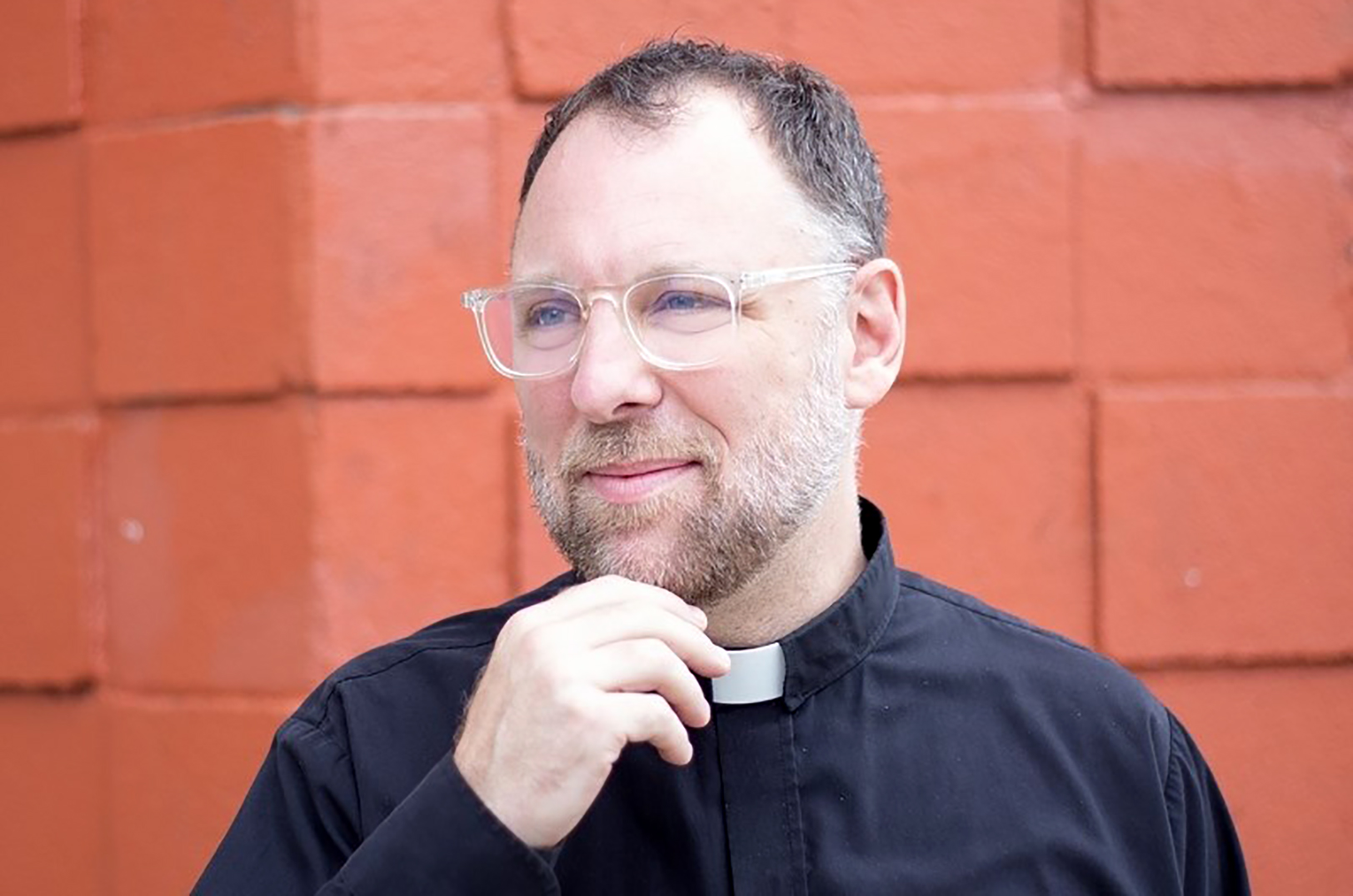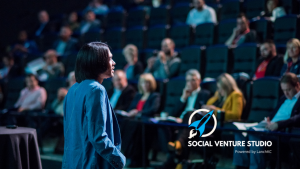A new Kansas City-based social venture studio is expected to help social entrepreneurs avoid grant starvation — and depending too heavily on financial gifts — in lieu of models that focus on innovative steps toward sustainability, said Father Justin Mathews.
“I got very excited about social venturing — this idea of being able to harness the best of entrepreneurship with the best of philanthropy; being able to, as a community, create opportunities to solve social, environmental, racial, and economic issues — and to do that sustainably,” said Mathews, executive director of Reconciliation Services, as well as steering committee co-chair for the new Social Venture Studio, powered by LaunchKC.
“It’s about creating an economic engine that also creates social good, where we can deliver return on investment while also delivering social return on investment,” he continued. “And Kansas City, I believe, is at the forefront of this movement.”
Applications for the six-month program open in December with selections expected to be announced in March, with a cohort of five to seven companies unveiled in April, organizers said Friday during a launch announcement as part of Global Entrepreneurship Week Kansas City (GEW KC). Participants are set to receive guidance, mentorship, funding, and network connections to strengthen their concepts and plans.
“While we’re initially focused on finding people in the Kansas City region in the first year, we hope that the studio’s going to expand the search for entrepreneurs participating nationwide,” Mathews said. “And we want to get them here to Kansas City. We want to build the social venture ecosystem in Kansas City.”
Watch the explainer video from LaunchKC’s Social Venture Studio below, then keep reading.
Reconciliation Services, which operates a prominent Kansas City social venture — Thelma’s Kitchen — will closely advise as a social venture industry expert and, as with all other LaunchKC efforts, Keystone Innovation District will administer programming. The Social Venture Studio was made possible through funding from the Sunderland Foundation.
The studio structure gives the effort the potential to offer greater growth opportunity over time, stressed Kevin McGinnis, president and CEO of Keystone Community Corporation.
“Why not call this an accelerator? Why not call this an incubator?” he said. “A studio gives us the flexibility to not just focus on acceleration, but to focus on the right structure and have the flexibility to provide the right support.”
The Sunderland Foundation’s backing gives the studio at least a three-year runway, added Jim Malle, program manager for LaunchKC, noting the expectation for the studio’s validation by the end of that time frame.
“At that point, we’ll prove that we can deliver and execute the program — and also show that there’s a need in Kansas City for this,” he said. “We see this as a long-term program that will be stood up in Kansas City, and stood up in the Keystone Innovation District.”
LaunchKC has evolved from a grants competition into a tech accelerator and studio platform, organizers detailed. It continues to see momentum, wrapping up its seventh year, having invested $3.5 million in cash grants to 86 companies, as well as continuing to strengthen its mentorship ecosystem.
Forty-nine percent of LaunchKC participant companies are minority or woman-owned businesses and $236 million in follow-on funding has gone to support these companies, LaunchKC reports.
“LaunchKC over the years has been really good at creating programs to support specific industries, whether it was insurance tech, healthcare care technology, clean technology,” said Jim Erickson, an economic development and government affairs official with the Economic Development Corporation of Kansas City, which operates LaunchKC alongside the Downtown Council.
“And what we have basically done over the last year is ask ourselves a question: ‘Could we respond to the moment? Could we do something unique nationwide and offer a program that not only supports entrepreneurs who are the job creators and economic engines of tomorrow, but do so in a way that we find those companies who are socially-driven, who are mission-driven?’”
“We talk about innovation a lot,” McGinnis added. “I think a lot of people confuse invention and innovation. And for us, the opportunity to realize innovation in this space is extremely important.”
“Innovation at its core principle is taking the existing tools, existing practices and repurposing them in new ways to solve new problems,” he continued. “To be able to take the resources that we have for traditional venture-backed, technology-based entrepreneurs and repurpose those in this space is extremely exciting for us.”









































